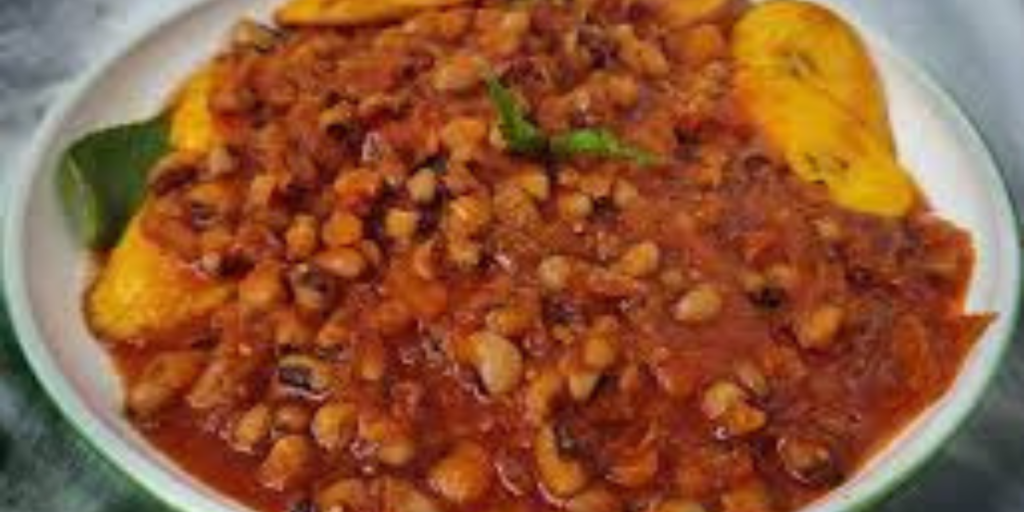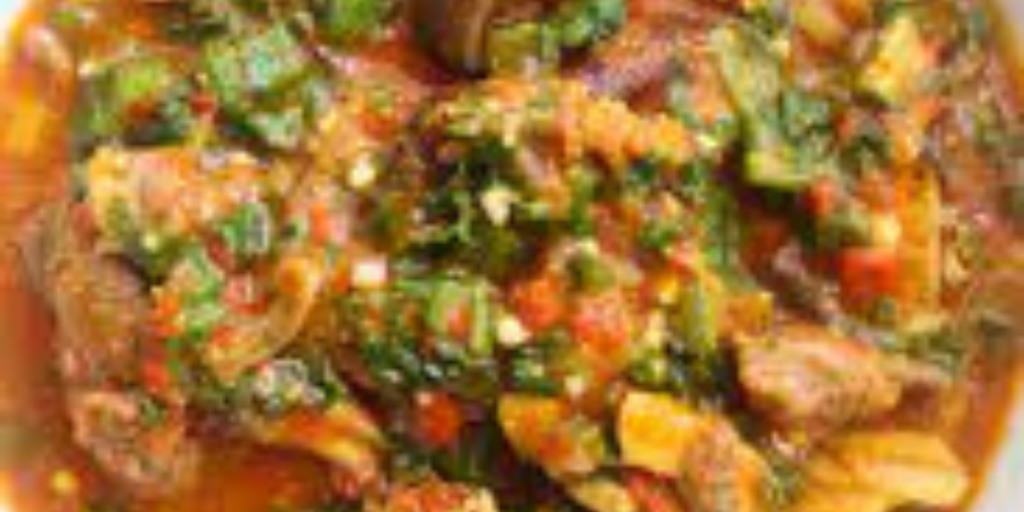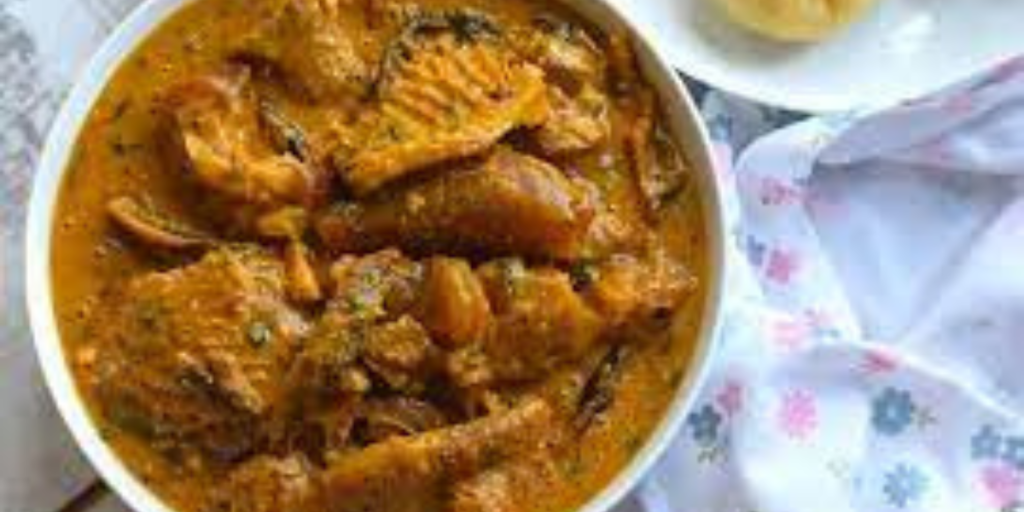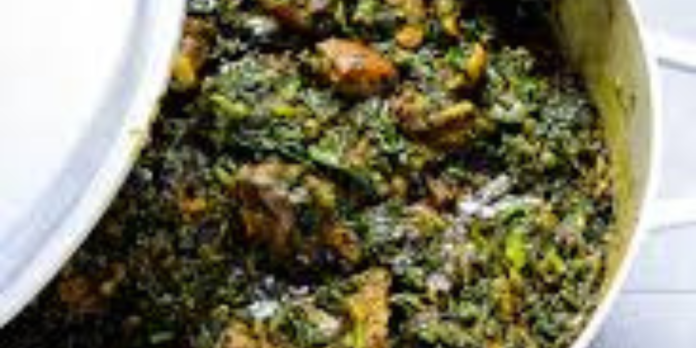Table of Contents
Nigeria, renowned for its diverse culture and rich cuisine, offers a plethora of healthy and nutritious Nigerian foods that not only tantalize the taste buds but also provide essential nutrients for optimal health. From vibrant vegetables to flavorful spices and wholesome grains, Nigerian cuisine presents a treasure trove of ingredients that contribute to overall well-being. With a culinary heritage deeply rooted in tradition and innovation, Nigerian dishes reflect the country’s cultural diversity and regional influences, resulting in a dynamic culinary landscape. In this article, we delve into the top healthy Nigerian foods, exploring their nutritional benefits, cultural significance, and culinary versatility to inspire a deeper appreciation for this vibrant cuisine.
Step into the colorful world of Nigerian cuisine, where vibrant flavors, rich traditions, and wholesome ingredients come together to create a culinary experience like no other. From the bustling streets of Lagos to the serene villages of the countryside, Nigeria’s diverse culinary landscape offers a treasure trove of delicious and nutritious foods that celebrate the country’s cultural heritage and commitment to wellness.
As we embark on a journey to explore the top five healthy Nigerian foods, we are greeted by a tantalizing array of options that showcase the country’s culinary ingenuity and deep connection to the land. From leafy greens bursting with nutrients to protein-rich staples that sustain generations, each ingredient tells a story of resilience, resourcefulness, and the timeless traditions that have shaped Nigerian cooking for centuries.
Join us as we delve into the flavors, textures, and nutritional benefits of these quintessential Nigerian foods, and discover why they have earned a place of honor on dining tables across the country and beyond. Whether you’re a seasoned food enthusiast or an adventurous newcomer to Nigerian cuisine, prepare to be tantalized by the vibrant colors, bold flavors, and wholesome goodness that await in the world of healthy Nigerian foods.
How To Make Moi Moi With Leaf Best Recipe
Vegetable Soups (Efo Riro, Edikang Ikong) :
Nigerian vegetable soups, such as Efo Riro and Edikang Ikong, are nutrient-packed dishes that feature an array of leafy greens such as spinach, kale, and pumpkin leaves. These soups are rich in vitamins A, C, and K, as well as minerals like iron and calcium, promoting healthy vision, strong bones, and a robust immune system. Additionally, they are often cooked with palm oil, which contains beneficial antioxidants like tocotrienols and tocopherols.
How To Make Moi moi With Tin Cup Best Recipe
Beans (Ewa) A Nigerian Food:

Beans are a staple in Nigerian foods and are celebrated for their high protein and fiber content. Whether it’s black-eyed peas, brown beans, or kidney beans, these legumes provide a sustained release of energy, regulate blood sugar levels, and support digestive health. Beans are also a good source of folate, potassium, and magnesium, essential for heart health and overall vitality.
Yams:
Yams are a versatile root vegetable widely consumed across Nigeria. Rich in complex carbohydrates, fiber, and antioxidants like vitamin C and manganese, yams provide long-lasting energy, aid in digestion, and combat oxidative stress. Whether boiled, roasted, or pounded into a smooth paste (as in pounded yam), this nutritious tuber adds depth and substance to Nigerian foods.
Okra Soup (Okro):

Okra soup, known as “okro” in Nigeria, is a flavorful and nutritious dish made from sliced okra pods, tomatoes, onions, and spices. Okra is packed with vitamins, minerals, and dietary fiber, promoting digestive health, lowering cholesterol levels, and supporting weight management. Additionally, the mucilage present in okra pods helps soothe the digestive tract and reduce inflammation.
Grilled Fish (Point and Kill):
Fish, particularly tilapia, catfish, and mackerel, is a popular protein source in Nigerian food. Grilled fish, locally known as “point and kill,” is a delicious and healthy option rich in omega-3 fatty acids, which are essential for brain health, heart health, and inflammation reduction. Fish also provides high-quality protein, vitamins D and B12, and minerals like selenium and iodine, supporting overall well-being.

In conclusion, Nigerian cuisine offers a diverse array of healthy and nutritious foods that reflect the country’s rich culinary heritage and agricultural abundance. From vibrant vegetable soups to protein-rich beans, wholesome yams, and flavorful grilled fish, Nigerian foods are not only delicious but also packed with essential nutrients vital for optimal health and well-being. By incorporating these top healthy Nigerian foods into their diets, individuals can enjoy flavorful meals while nourishing their bodies and promoting longevity.
Furthermore, the cultural significance of Nigerian cuisine extends beyond mere sustenance, with traditional dishes often serving as a centerpiece for communal gatherings and celebrations, reinforcing bonds within families and communities. Embracing Nigerian culinary traditions not only promotes physical health but also fosters a deeper connection to cultural roots and traditions. In today’s globalized world, where dietary trends often prioritize convenience over nutritional value, exploring the rich tapestry of Nigerian cuisine offers a refreshing perspective on the intersection of food, culture, and health. Thus, by embracing the diverse flavors and nutrient-rich ingredients of Nigerian cuisine, individuals can embark on a delicious journey towards holistic well-being and cultural appreciation.
In conclusion, our journey through the realm of healthy Nigerian foods has illuminated a vibrant tapestry of culinary delights, where flavor, nutrition, and cultural heritage converge to create nourishing meals that satisfy both body and soul. From the bustling streets of Lagos to the lush farmlands of the countryside, Nigeria’s diverse landscape offers an abundance of ingredients that form the foundation of a balanced and wholesome diet.
As we’ve explored the top five healthy Nigerian foods, we’ve discovered a rich array of options that showcase the country’s culinary ingenuity and commitment to wellness. From nutrient-rich leafy greens like spinach and ugwu to protein-packed staples like beans and fish, each ingredient offers a unique blend of vitamins, minerals, and essential nutrients that promote overall health and well-being.
But beyond their nutritional benefits, these healthy Nigerian foods serve as a celebration of the country’s rich cultural heritage and the timeless traditions that have been passed down through generations. Whether enjoyed in a traditional stew, soup, or salad, each dish tells a story of resilience, resourcefulness, and the deep connection between food and community.
As we conclude our exploration of the top five healthy Nigerian foods, let us carry forth the lessons learned and the flavors savored. Let us celebrate the diversity of Nigerian cuisine and the nourishing power of wholesome ingredients that have sustained generations of Nigerians for centuries.
So, whether enjoyed at a bustling market stall, a family gathering, or in the comfort of your own home, may every bite of these healthy Nigerian foods be a reminder of the vibrant flavors, rich cultural heritage, and unwavering commitment to wellness that define Nigerian cooking. Here’s to a lifetime of good health, delicious meals, and the joy of sharing food with loved ones.




















